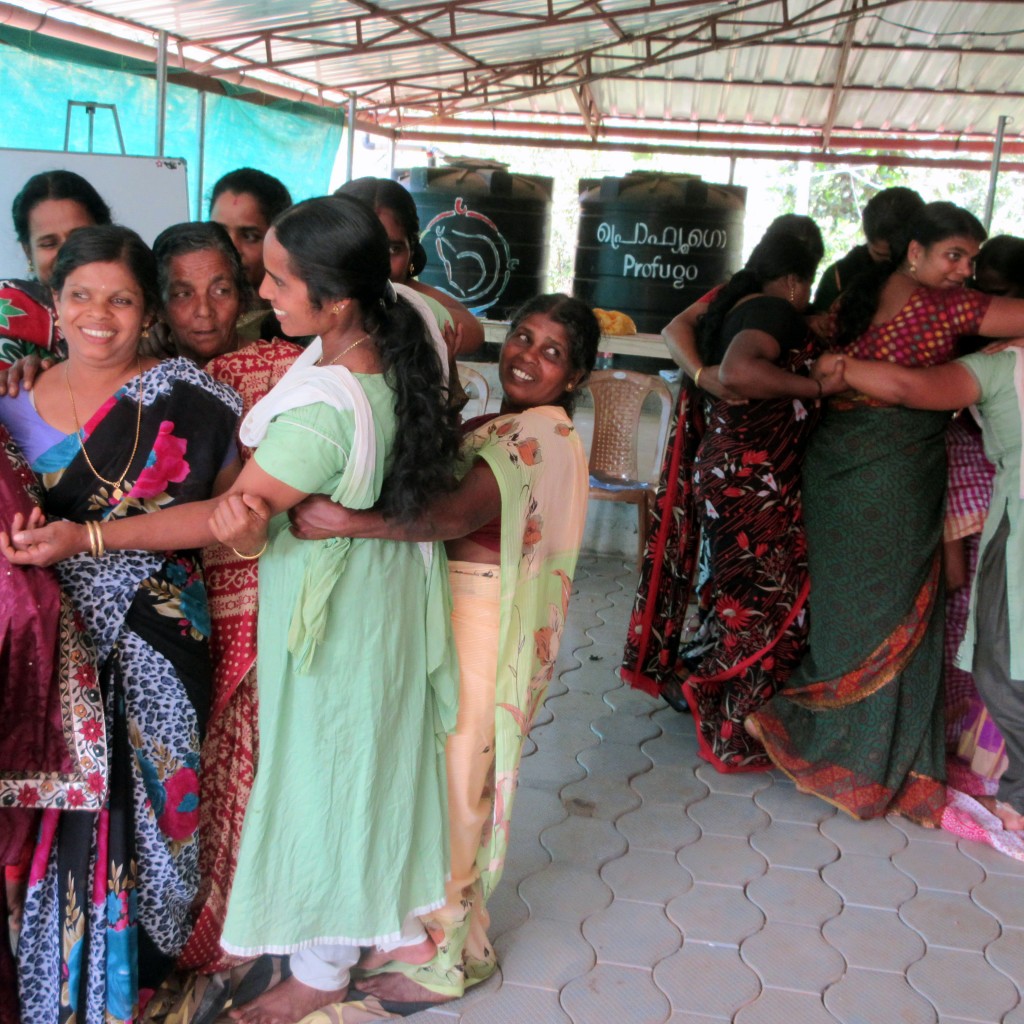In 2015, U.N. officials and leaders of international development programs announced that volunteers would be an essential part of efforts to meet the newly proposed Sustainable Development Goals. It was also a year in which volunteers demonstrated their potential to create change. Thousands of volunteers responded to the Ebola crisis in Guinea and helped to strengthen social services in Togo; however, despite the scope and significance of volunteers’ accomplishments, their contributions are often unrecognized or undervalued. One Australian study found that every dollar invested through volunteer work results in a $4 gain; in other words, the return on investment for volunteer work is estimated at 4:1. Aside from adding financial value, the labor of volunteers also has the potential to increase human, social, and physical capital. Yet, having demonstrated the importance and value of volunteer work, it is also important to consider another question: how can volunteerism be sustainable?
The 2015 State of the World’s Volunteerism Report concisely addresses issues that have arisen in the last 20 years of development work while also suggesting potential improvements to make volunteerism more sustainable. First and foremost, the Report recognizes the need to pair increased sustainability with a commitment to equality; past projects have left many people behind and, consequently, have in some way contributed to growing inequality within and between nations. Furthermore, the ownership and participation of community members in the development project is fundamental for both the success and sustainability of the project. Volunteerism should establish people-centered models of development that privilege the marginalized and are informed by local knowledge and experience. Notably, volunteer programs are most effective when participants are aware of the local and national power structures in which their work takes place. Furthermore, by establishing a mutual appreciation of knowledge, skills, and networks between the volunteer and the host community, volunteerism can avoid the construction of power asymmetries. Above all, the Report finds that volunteerism must be participatory, accountable, and responsive.
Profugo has structured and adjusted its programs in a manner that hopes to address and reconcile some of these concerns. The people of the Prashanthagiri community are very much at the center of the organization’s development approach. Notably, programs designed to educate and empower women give special attention to those who have traditionally held less power and status in society. Profugo also encourages community participation and ownership of its development projects by valuing local knowledge and experience and transferring project control to community members. For example, although the wells constructed during the Water for Life project were built using funds and expertise from Profugo, they are now controlled and maintained by community members. Similarly, Profugo transformed the women’s Tailoring Training program into a self-managed group organized by the women themselves. By creating programs that generate, rather than impose, social change from within the community, Profugo endeavors to provide people with the tools and resources that will allow them to lead better lives.
In some ways, volunteerism’s nature as an industry dependent on the participation of people makes it sustainable. People are, after all, a renewable resource. Notably, volunteering can have a “ripple effect”: when community members see others volunteering and recognize the impact of their donated time, they may be inspired to become “active citizens” and get involved in volunteering themselves. The potential of a volunteer ripple effect is more likely, and more promising, when one considers the value and importance of volunteering to the current generation. Though often characterized as lazy, uninformed, and apathetic, Millennials are measurably more concerned with volunteering than past generations. People under age 30 are more likely than other age groups to find that citizens are obliged to volunteer. Millennials are also more likely to volunteer than adults were in the late 80’s. Additionally, it is not uncommon for today’s young adults to work in companies that promote volunteer work and even allow employees to spend a portion of their work week volunteering, rather than in the office. As a group, Millennials seem to have the capacity to encourage an unprecedented number of people in their communities to become active citizens. Furthermore, if they pass these values on to their children, it follows that the next generation will be even more committed to volunteering than the last.
Michaela Brown, a former Project Coordinator in Ghana, argues that sustainable volunteerism can take many forms. Evidently, sustainability is important in terms of volunteer placement (i.e., matching volunteers’ skills to the project’s needs), project monitoring, and capacity-building. However, Brown finds that true sustainability comes from the lasting, positive changes that shape the ideas and thoughts of individuals as a result of their time as volunteers. At Profugo, this exact form of sustainability is evident in the reflections of former field fellows, interns, and volunteers. Regardless of their role, Profugo volunteers consistently describe their experiences as ones which have altered their ways of thinking and understanding the world. Speaking from my own experience, I feel that interning at Profugo has given me a better understanding of the realities of living in extreme poverty, ethical and community-centered development practices, and, perhaps most importantly, of the capacity of individuals to incite change.
Sources:
https://www.devex.com/news/how-will-volunteers-help-meet-sustainable-development-goals-85160
http://www.whydev.org/international-volunteerism-who-benefits-most/
http://www.volunteeractioncounts.org/en/swvr-2015.html
http://www.huffingtonpost.com/richard-dictus/why-volunteers-can-help-l_b_8053878.html
http://www.huffingtonpost.com/richard-dictus/why-volunteers-can-help-l_b_8053878.html
http://www.huffingtonpost.com/2014/12/29/millennials-volunteering_n_6390446.html


Leave a Reply
You must be logged in to post a comment.